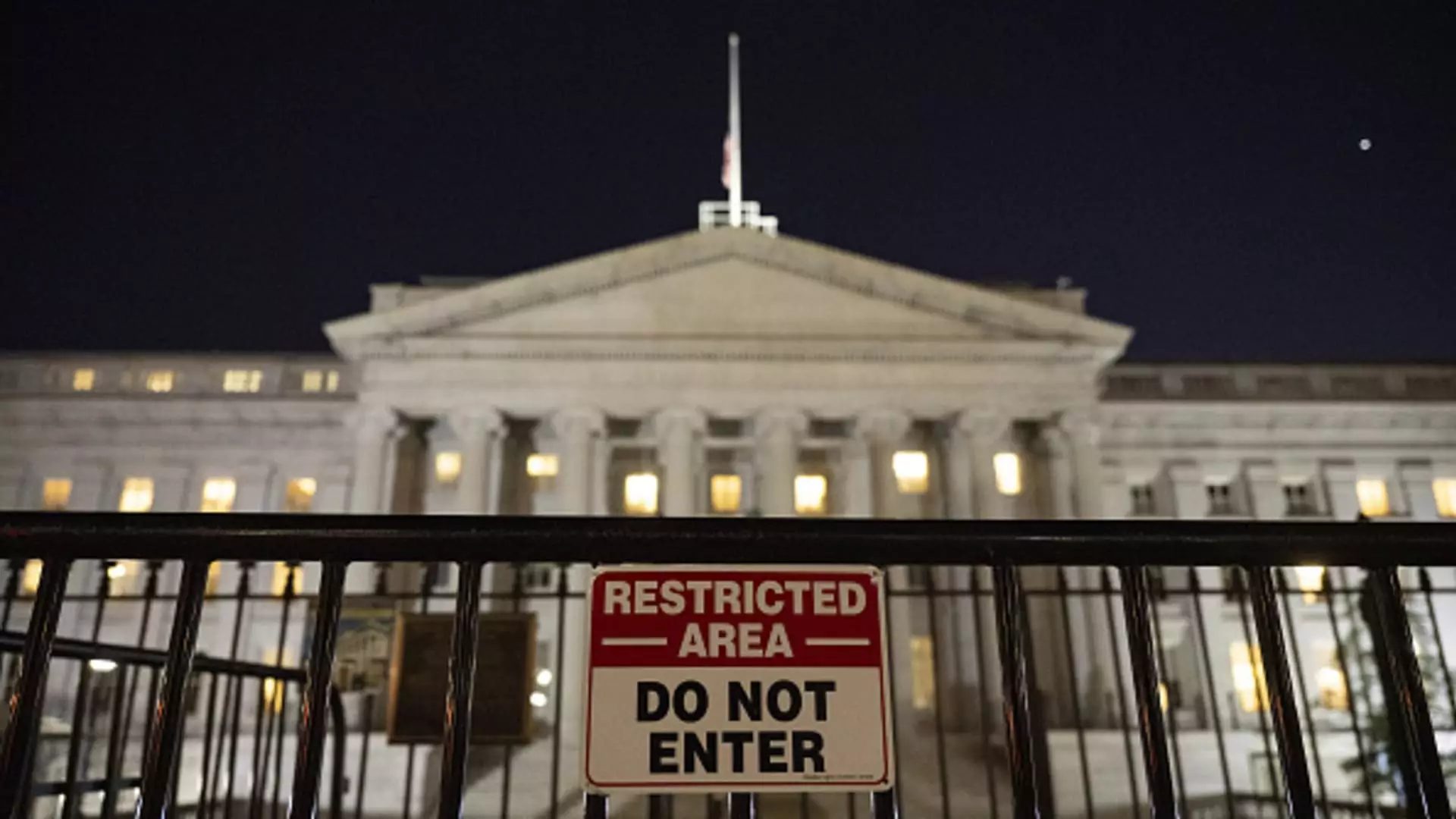In a revelation that underscores the escalating stakes in U.S.-China relations, the U.S. Treasury Department has reportedly fallen victim to a sophisticated cyber intrusion orchestrated by Chinese state-sponsored hackers. The breach, first reported by the Washington Post, has incited concerns not only over national security but also about the implications for economic sanctions—a critical tool in U.S. foreign policy. According to unnamed U.S. officials, both the Office of Foreign Assets Control (OFAC) and the Office of Financial Research (OFR) were compromised, along with the sensitive office of Treasury Secretary Janet Yellen.
The incident is particularly alarming as it speaks to the vulnerabilities within key governmental departments charged with overseeing sanctions against foreign entities. The use of unclassified documents, which were reportedly stolen during this cyber incident, raises questions about the adequacy of information protection measures within these sectors. An unsettling aspect of this breach is the apparent targeting of specific entities that may face sanctions, making the situation even more dire for U.S.-China economic relations.
The response from the Chinese government has been vehement, categorically denying the accusations as unfounded and politically motivated. Liu Pengyu, a spokesperson for the Chinese Embassy in Washington, referred to the U.S. claims as “irrational” and indicative of “smear attacks” against China. This kind of pushback not only highlights the contentious political climate but also illustrates the complexities of navigating accusations of cyber warfare in an age where information tactics and denials are commonplace.
The Chinese government has publicly stated that it opposes all forms of cyberattacks, although it did not address the specifics of the reported targets. This disconnect between the assertions of the U.S. government and China’s denials amplifies the confusion and mistrust that pervade diplomatic discussions, especially regarding cybersecurity—a domain increasingly recognized as the battleground of modern geopolitical conflicts.
Economic sanctions against Chinese entities have become a hallmark of U.S. policy, especially as relations between the two nations have soured over issues like trade and human rights. The Treasury Department’s disclosure that its systems were compromised by hackers who may seek insights into future sanction decisions reveals an unsettling intersection between cybersecurity and economic strategy.
U.S. Treasury Secretary Janet Yellen has indicated that the government may not shy away from imposing sanctions on Chinese banks, particularly amid broader discussions surrounding Russia’s funding streams in its ongoing conflict in Ukraine. As the U.S. tightens its sanction frameworks, the stakes for both nations escalate, necessitating an urgent reassessment of cybersecurity measures within departments that wield significant influence over global economic policies.
As cyber threats become more sophisticated and pervasive, it is imperative that the U.S. government bolsters its defenses against external intrusions. This incident is a wake-up call that not only illuminates existing vulnerabilities but also serves as a clarion call for a cohesive cyber strategy that addresses both offensive and defensive measures. The implications of this breach are vast, potentially reshaping the landscape of international diplomacy, economic policy, and national security for years to come. The U.S. must be prepared to fortify its cyber resilience while navigating the turbulent waters of a strategically complex relationship with China.


Leave a Reply